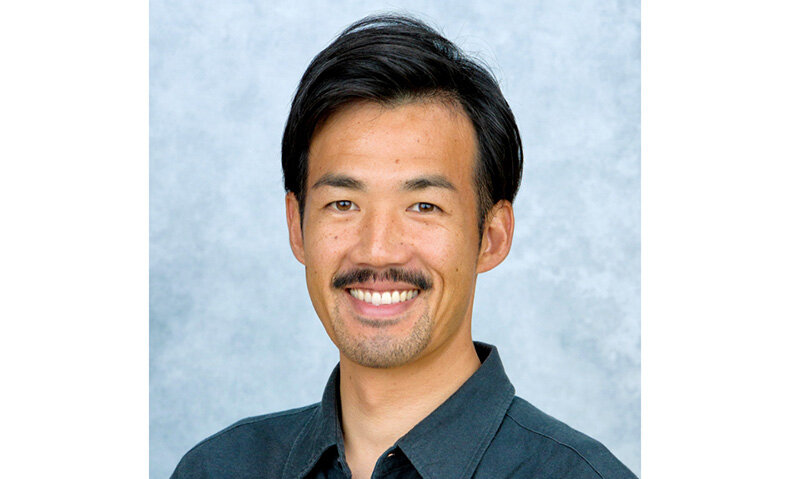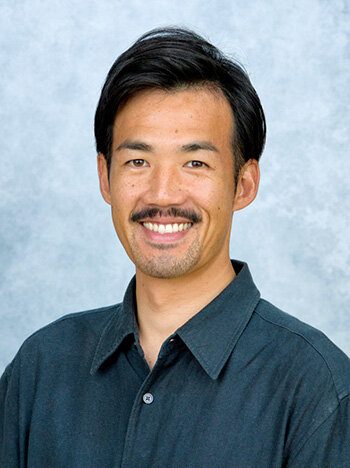Teacher at Emmanuel College, Australia
March 2012 B.A. (Major: Media, Communication & Culture, Minor: Language Education), ICU College of Liberal Arts, Division of Arts and Sciences
Striving to Cultivate Individuals Who Can Respect Different Values and Cultures

The Joy of Supporting Students' Growth as a Japanese Language Teacher
I currently work as a Japanese language teacher at Emmanuel College in Australia, a secondary school equivalent to junior high and high school in Japan. During my time at ICU, I completed a Japanese language teacher training program, which led me to pursue this path. After graduating from ICU, I spent a year in Australia as an assistant Japanese language teacher, then obtained my Australian teaching license through a Master of Teaching program at a local graduate school, bringing me to where I am today.
At my school, foreign language courses (either Japanese or French) are mandatory in the first and second years of junior high, and all students take Japanese for at least half a year. From their third year onward, junior high students can choose whether to continue studying a foreign language. Those who take Japanese classes through their senior year of high school have opportunities to participate in exchange programs with our sister school in Japan or even study trips to Japan. While the environment is rich in Japanese language education, some students have little interest in the Japanese language, so I continuously try different approaches to make learning enjoyable. Japanese is often seen as a difficult language due to its three writing systems - hiragana, katakana, and kanji. However, Japanese grammar is surprisingly simple in some aspects, and I make an effort to share the interesting and appealing aspects of Japanese with my students. I also actively participate in study sessions with fellow teachers, exchanging ideas on teaching methods and maintaining a commitment to continuous learning as an educator.
A rewarding part of my job is witnessing my students' growth. A student who initially struggled to learn hiragana and kanji eventually becomes capable of holding discussions and writing long texts in Japanese by graduation. Seeing such transformations reaffirms my choice to become a teacher. Hearing students say things like, "Thanks to you, I found my future goal," "I want to work as a translator in Japan," or "I want to teach Japanese in Australia" fills me with even more joy. As a secondary school teacher, my role is similar to that of a typical junior high or high school teacher in Japan. I am responsible for my class, conduct homeroom sessions, hold student consultations, and provide guidance on daily life. Being able to support students closely during this critical phase of their development and witness key turning points in their lives is one of the most fulfilling aspects of this job.

Left: From the Emmanuel College website, Right: With students in Hiroshima on a study tour
Finding My Path at ICU: Diverse Learning and Meaningful Encounters
I chose ICU because of its commitment to fostering globally-minded individuals based on Christian values and its liberal arts education, which allows students to explore various fields. As someone interested in working internationally and finding future career direction through diverse learning, the school was an ideal choice.
After enrolling, I took courses in a wide range of fields and became particularly drawn to classes on Japanese language education. Although I had used Japanese unconsciously in daily life, I became fascinated by the process of logically understanding its grammar and explaining it to others in a clear manner. When I learned about the Japanese Language Teacher Training Program, which provides certification upon completing a set number of designated courses, I became even more determined to study this field.
I solidified my decision to pursue this career during my third year when I participated in a teaching practice program in Australia. Over the course of about a month, I taught Japanese at a local secondary school and was deeply moved by how rewarding it felt to witness students' growth firsthand. I was also drawn to Australia's working style, which prioritizes work-life balance, and became certain that I wanted to become a Japanese teacher there.
At ICU, beyond Japanese language education, I was exposed to various academic disciplines, which helped me understand the importance of viewing issues from multiple perspectives. One particularly impactful course was on media and communication. Learning to always consider issues from the standpoint of minorities and marginalized groups has remained a core value in my approach as an educator.
ICU also provided numerous opportunities to interact with international students, sparking my interest in intercultural understanding and multicultural coexistence. Many Japanese students at ICU came from diverse backgrounds, including returnees and those who received international-style education in Japan, challenging my preconceived notions of what it means to be "Japanese." Living in an international dormitory and sharing daily life with students from various nationalities and backgrounds was an invaluable experience. The friends I made there feel like family, and we remain close to this day. Through dorm life, I not only improved my practical English skills but also developed teamwork and leadership abilities. Before enrolling, my English skills were not strong, but I am now able to work overseas thanks to the environment ICU provided, for which I am deeply grateful.

Left: Teaching practice program in Australia, Middle: With dorm mates, Right: At ICU Festival (So Ota is on the right in the photo)
Different Perspectives and Embracing Challenges with a Positive Mindset
Moving forward, I want to continue growing as a teacher while teaching Australian junior and high school students the Japanese language. I am constantly experimenting with new ways to make more students interested in Japanese, such as incorporating physical activities, games, and IT into lessons. My experiences at ICU continue to influence my teaching approach. Instead of relying on one-way lectures, I strive to create discussion-based, interactive learning experiences, just as my professors at ICU did.
It has now been over ten years since I started teaching Japanese in Australia. At the heart of my work is a desire to foster not only Japanese language skills but also an appreciation for intercultural understanding and multicultural coexistence. Even if someone is not skilled in a foreign language, simply having respect for different values and cultures can contribute to a more peaceful world. Additionally, I strive to avoid imposing stereotypes about Japan or Japanese people on my students. Instead, I aim to present the diverse aspects of Japan, showing them that "There are also people like this in Japan" and "Japan has many different cultures."
Among ICU students, I imagine some will eventually work overseas. Life abroad can be challenging, but rather than merely labeling it as "difficult," it is important to adopt a mindset of "How can I overcome this?" Instead of being overwhelmed by culture shock, shifting your perspective to "Let me learn more about this" can make a significant difference. To prepare for such experiences, I encourage ICU students to embrace diverse perspectives, gain a variety of experience, and broaden their horizons.
Profile
So Ota
Teacher at Emmanuel College, Australia
March 2012 B.A. (Major: Media, Communication & Culture, Minor: Language Education)
After enrolling at ICU, completed the Japanese Language Teacher Training Program. Following graduation, worked as an assistant Japanese language teacher for one year under the Australian government-authorized Language Assistants Program (LAP). Later obtained a Master of Teaching from Federation University. Currently teaches Japanese and Media at Emmanuel College.




